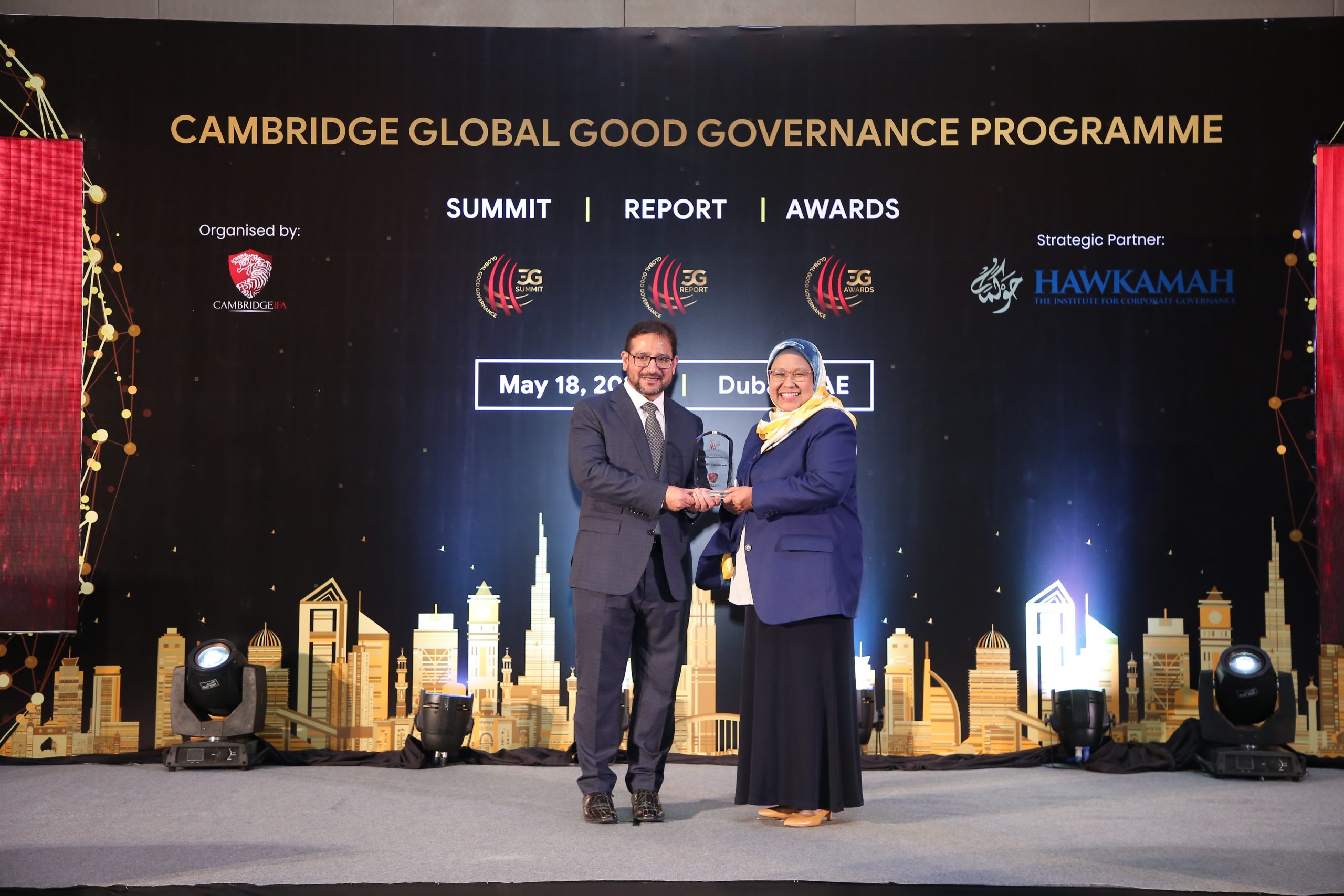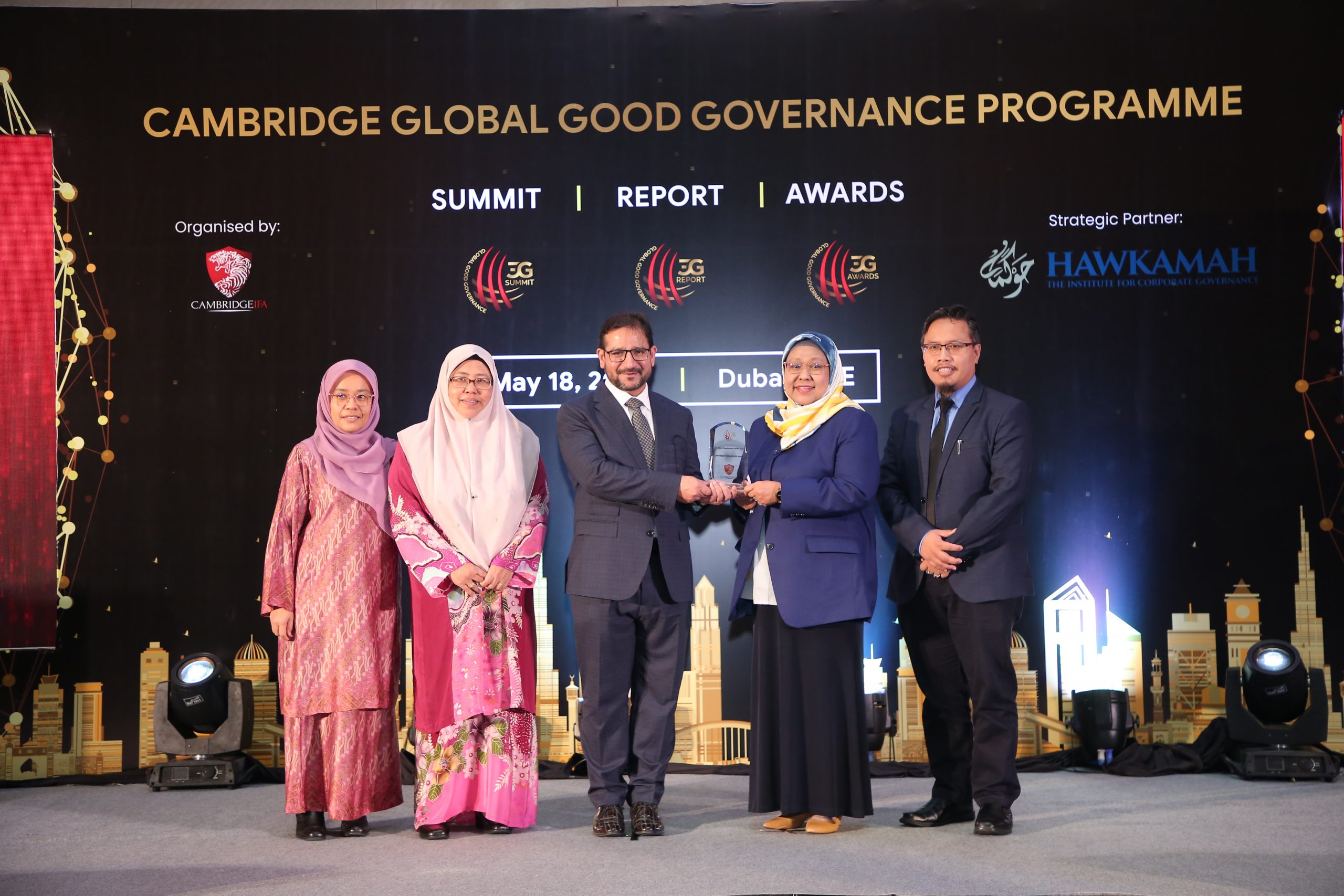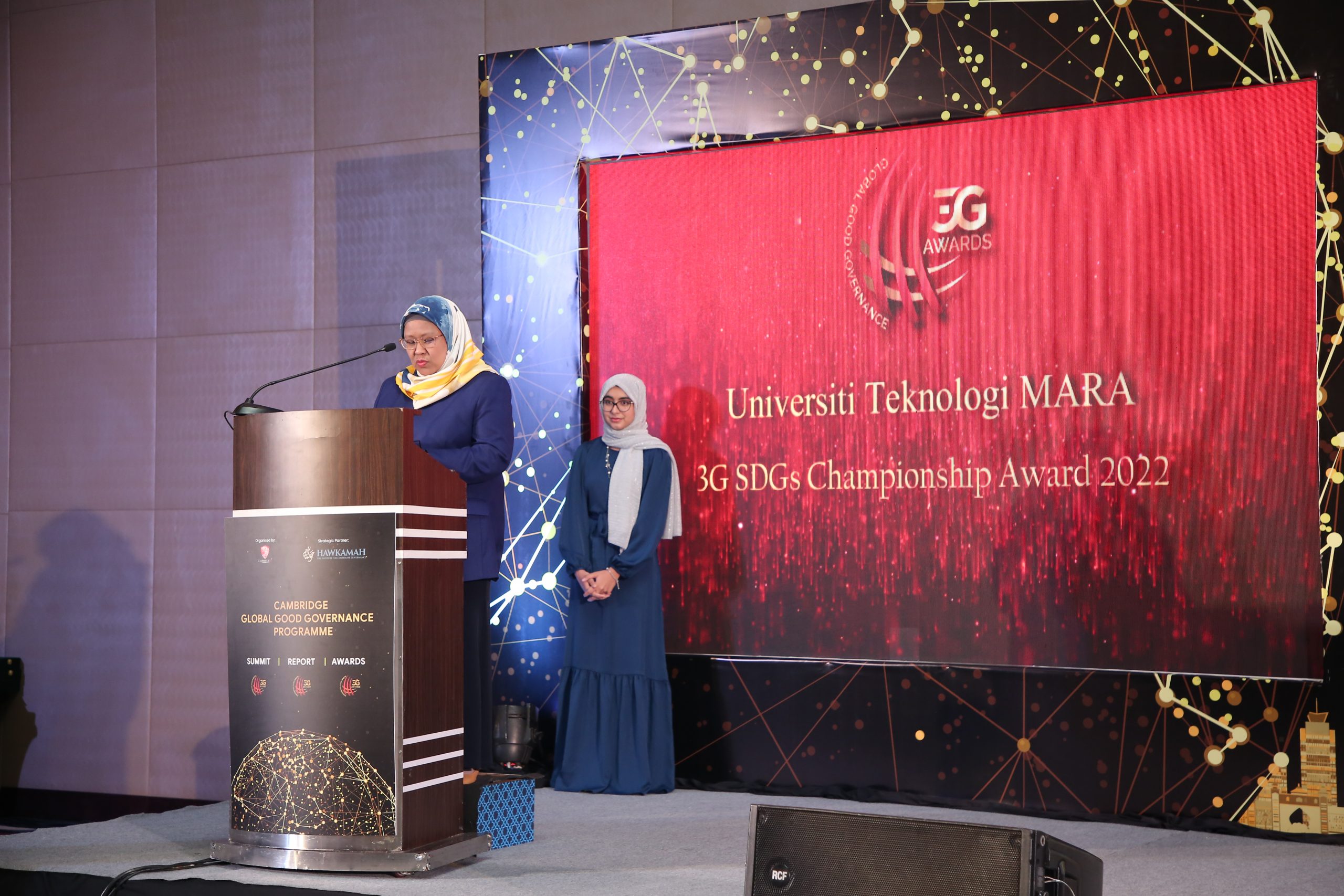DUBAI, UAE 18 MAY 2022 – Universiti Teknologi Mara (UiTM) scored a win at the 7th Global Good Governance Awards when it was awarded the 3G SDGs Championship Award 2022. Held at Conrad Hotel, Dubai and streamed live via hybrid mode, the award ceremony was organised by Cambridge Institute of Islamic Finance (IFA), a leader in community service initiative programmes to promote good governance practices globally.
The Global Governance Awards or 3G Awards celebrates individuals, governments, public and private institutions as well as NGOs who strive for good governance and sustainability as part of the organisation’s strategic thrusts. Three categories were highlighted namely Governance and Politics, Corporate Sector, as well as Social and Philanthropy Sector. A total of 51 awards were awarded by the Director General of Cambridge IFA, Dr Humayon Dar to 29 recipients from around the world and various sectors, including Doha Bank, DRB-HICOM Berhad, Evermos, Brunei Institute of Leadership and Islamic Finance (BILIF), Badan Amil Zakat Nasional (BAZNAS), ASEAN Foundation and Virtual University Pakistan.
UiTM Vice-Chancellor, Prof. Datuk Ts. Dr Roziah Mohd Janor accepted the award along with the university’s delegation – Prof. Ts. Dr Haryani Haron, Dean, Faculty of Computer Science and Mathematics, Assoc. Prof. Dr Amirul Afif Muhamat, Deputy Dean (Research and Innovation), Faculty of Business and Management, as well as Ts. Dr Hayati Abd Rahman, Director of Strategic Communications, UiTM Communications Department.
In her speech, UiTM Vice-Chancellor was extremely pleased to receive the award and stated that as a higher learning institution, UiTM’s mission is to provide quality education to the underprivileged and less fortunate communities in Malaysia. As the largest university in Malaysia, UiTM has produced nearly 900,000 professionals ranging from doctors to engineers, lawyers, accountants, architects, musicians, performers, and even artists.
She also expressed her gratitude and thanked Cambridge IFA and Dr Humayon Dar for this recognition to UiTM. She also gave a special thanks to the Minister of Higher Education, and the Government of Malaysia, as well as local and international institutional partners, stakeholders and the big UiTM family.
At the Global Good Governance Summit 2022, UiTM Vice-Chancellor was appointed as a panel to discuss the theme of Good Governance for Sustainability Development where she highlighted the topic of Sustainability Leadership at the summit, alongside other distinguished panellists – Prof. Dr Rahell Qamar, Director of the Organisation of Islamic Education, Science and Culture, H. E. Sawsan Al-Fahoum Jafar, Chairman of the Board and Founding Member of the Friends of Cancer Patients.
In the discussion, they highlighted global issues involving the use of technologies and digital innovation that have threatened privacy, security, and the imbalance of natural resources. Additionally, diverse roles of governance will drive the achievement of SDGs and strengthen philanthropy for long-term social impacts. Moreover, various social sectors can help build and sustain values like diversity, responsibility, and transparency into their businesses especially in a disruptive-driven economy requiring leaders to play their role in overcoming leadership challenges in an organisation.
Besides leadership sustainability, other topics of interest including governance, sustainability development and empowerment, were also highlighted at the summit. Among the panellists were H. E. Saeed Mohammed Al Tayer, Managing Director and Executive Officer of Dubai Electricity and Water Authority (TBC), Dr Ashraf Gamal El Din, Chief Executive Officer of Hawkamah, Emilio Benitor Aquino, Chairman of the Securities and Exchange Commission Philippines, as well as Hajah Sufinah Haji Sahat, Chief Executive Officer of the Brunei Institute of Leadership & Islamic Finance (BILIF).
Discussions focused on good governance and public administration methods, governance improvements and efforts to achieve SDGs, technological and innovation adaptation to change governance, corporate roles in shaping a sustainable world, as well as methods to mobilise community action.



